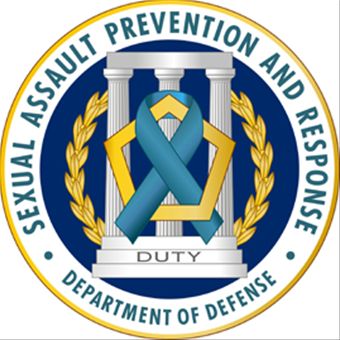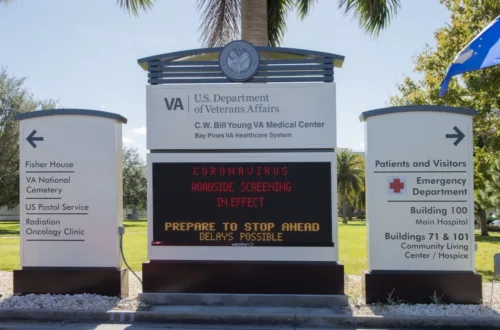DoD Sexual Assault Prevention and Response

In light of the recent tragic death of Fort Hood soldier Pfc. Vanessa Guillen, a spotlight has turned to the topic of sexual harassment and assault within the military. Pfc. Guillen was killed after experiencing sexual harassment from soldiers within her unit. In a properly supervised and educated military structure, there should have been many individuals to keep this from happening.
SAPR
The Department of Defense’s Sexual Assault Prevention and Response Office (SAPR) receive reports and also implement preventative training to active duty military members of all branches. We’ve put together an overview of this program, which offers training on how preventative action by individuals within the military community can ensure that there will be no repetition of this terrible—and preventable—loss of life.
SARCs
SARCs (Sexual Assault Response Coordinators) serve as primary points of contact for coordinating sexual assault victim care services. The SARC office also provides on-installation sexual assault prevention training. SARCs assign victim advocates to victims reporting an assault, who provides whatever support is needed.
Bystander Intervention Training
Bystander Intervention Training (BIT) is mandatory for all military personnel and civilian supervisors of military personnel. There are three audiences the training addresses: men, women, and leaders. BIT consists of presenting scenarios based on actual events to incite discussion on how bystander intervention could have diffused a situation, or how a lack thereof can create an environment in which assault can be allowed to happen.
Types of Reporting
Restricted Report
Enables military members, dependents (18+) and DoD Air Force civilian employees who are victims to report allegations of sexual assault to specified personnel without initiating an investigation. Specified personnel include the SARC, a military healthcare provider, or an on-duty victim advocate. While chaplains have confidentiality/privilege, they cannot take a Restricted Report. Communication related to the incident is considered protected.
- Provides confidential reporting.
- Allows access to medical care, counseling and a victim advocate but does not initiate the investigative process. Intended to give the victim additional time and increased control over the release and management of the victim’s personal information.
- Intended to give the victim additional time and increased control over the release and management of the victim’s personal information.
- Empowers the victim to seek relevant information and support to make an informed decision about participating in the criminal process.
- Civilians and retired members are not eligible to make a restricted report.
Unrestricted Report
- Any report of a sexual assault made by a victim through normal reporting channels which includes the victim’s chain of command, law enforcement, and the AFOSI or other criminal investigative service.
- No confidentiality.
- The SARC will be notified and assign a victim advocate to the individual.
- Details of the allegation will be provided only to those personnel who have a legitimate need to know.
Independent Report
- Information about a sexual assault is disclosed to command from an independent or third-party source.
- An official investigation may be initiated based upon an independent report.
SAPR Connect
Developed by the SAPR Office, SAPR Connect is an online platform which shares research, expert insights, and news from the field. This tool provides a wide variety of resources to ensure the efficacy of sexual assault prevention programs.
How to Contact a Sexual Assault Response Coordinator (SARC)
- Visit the DoD Safe Helpline and search for the SARC nearest to you
- Call the DoD Safe Helpline at: +1 (877) 995-5247
- Call the base operator for your base’s SARC phone number
Installation Offices Also Offering Support
Other installation offices and contacts that offer support in sexual assault and harassment:
- Chapel
- Equal Opportunity Office
- Family Advocacy Office
- Mental Health
- Domestic Abuse Victim Advocate
If you ever feel you are in immediate danger, call 911.
RELATED:
- Mental Health & Resilience Resources For Veterans
- Resiliency Programs for Military Children
- New Law Would Require VA to Provide Service Dogs to Veterans with PTSD or Mental Health Disorders
About the author
Julie Provost is a freelance writer, and blogger. She lives in Tennessee with her National Guard husband and three boys.


